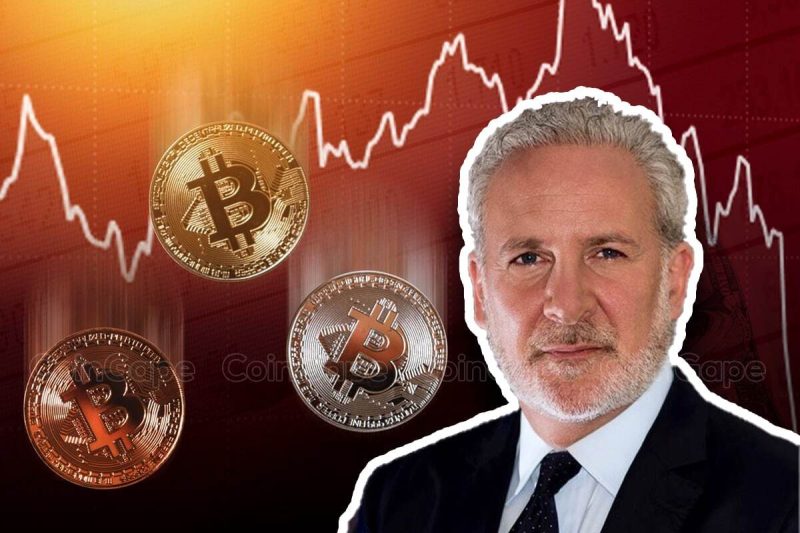
Peter Schiff Says Bitcoin Could Destroy The Dollar, Here’s How
Peter Schiff, an economist and Bitcoin critic, recently suggested that Bitcoin could destroy the U.S. dollar. His remarks focus on the potential for U.S. government intervention in Bitcoin markets, which could have unforeseen consequences for the value of the dollar. Schiff, who has long argued that Bitcoin is a speculative asset, points to the possibility that the U.S. government could inflate the money supply and create an unsustainable economic bubble.
Peter Schiff Warns Bitcoin’s Rise Could Lead to the Collapse of the Dollar
According to a recent post on X, Peter Schiff warned that the rise of Bitcoin could eventually lead to the collapse of the U.S. dollar. Schiff argued that Bitcoin’s surge in price has largely been influenced by government intervention, which could have long-term negative effects on the dollar.
Schiff’s concerns center on the possibility of the U.S. government adopting Bitcoin on a large scale. He suggested that the government might inflate the money supply by purchasing Bitcoin with newly printed dollars, leading to a large-scale economic bubble. Such actions will weaken investor confidence in the U.S. dollar.
The BTC critic emphasized,
“Bitcoin may end up destroying the dollar after all, not because it replaces the dollar as a global reserve currency, but because the U.S. government embraces Bitcoin, prints trillions of dollars to buy it, and fuels a larger bubble that squanders the nation’s wealth.”
Additionally, the Bitcoin critic stated that BTC’s growth reached its $100,000 milestone, not because of organic market demand, but due to political lobbying and government support. In Schiff’s view, this government-backed momentum could push the U.S. into an economic bubble.
More so, Peter Schiff insisted that the $100, 000 milestone would never come to pass without the Government’s influence.
It’s ironic that #Bitcoin only hit $100k by buying off politicians and getting in bed with government. Without expected government intervention, this milestone never would have been hit. What couldn’t be done in a free market was achieved through the cohesive power of the state.
— Peter Schiff (@PeterSchiff) December 5, 2024
However, Fed Chair Jerome Powell expressed a different opinion, stating that Bitcoin is more comparable to gold than the U.S. dollar. He emphasized that Bitcoin, like gold, is a speculative asset and not a direct competitor to the dollar. Powell’s comments highlight Bitcoin’s increasing role as an inflation hedge, similar to gold.
The Risks of Trump’s Proposed Bitcoin Reserve
Former President Donald Trump has proposed a crypto advisory council to create a national Bitcoin reserve. However, Schiff has criticized this move, warning that if the U.S. government buys large amounts of Bitcoin, it could destabilize the dollar.
Trump’s idea of building a Bitcoin reserve involves the U.S. purchasing large amounts of Bitcoin annually, potentially accumulating up to one million BTC. According to Schiff, this plan could shift focus away from traditional assets like gold, weakening the dollar’s position in global trade.
If the U.S. were to sell off gold reserves to fund the Bitcoin purchase, Peter Schiff believes it could spark a financial crisis. The move could signal to global markets that Bitcoin is a more viable store of value than the U.S. dollar. This could lead to a loss of confidence in the dollar as the world’s reserve currency, diminishing the dollar’s global dominance.
In addition, the ongoing efforts by BRICS nations to reduce their reliance on the U.S. dollar could further exacerbate Peter Schiff’s concerns. The BRICS bloc, which includes Brazil, Russia, India, China, and South Africa, has been actively exploring alternatives to the dollar in international trade. In response, Trump has threatened harsh measures, including 100% tariffs on BRICS exports.
The post Peter Schiff Says Bitcoin Could Destroy The Dollar, Here’s How appeared first on CoinGape.

